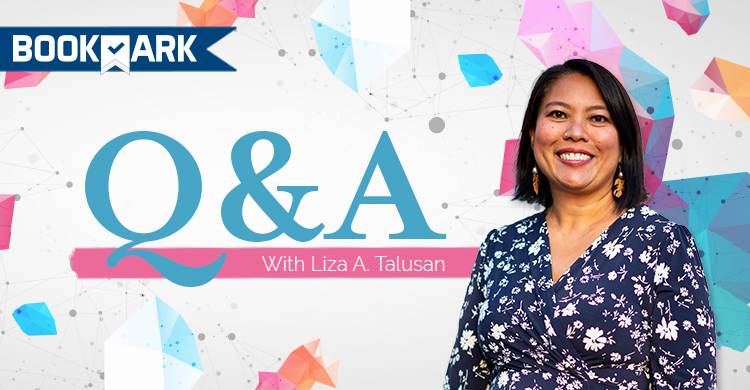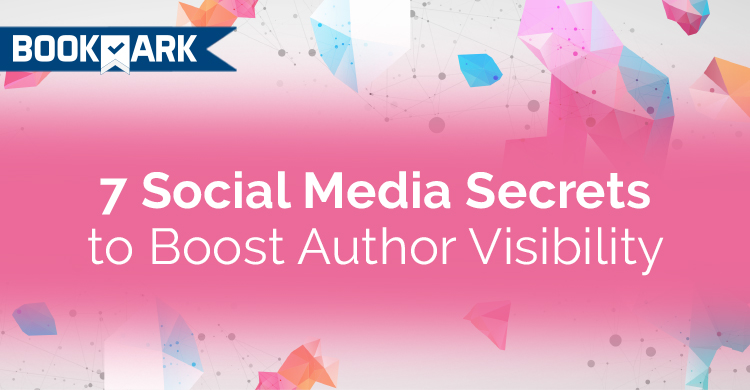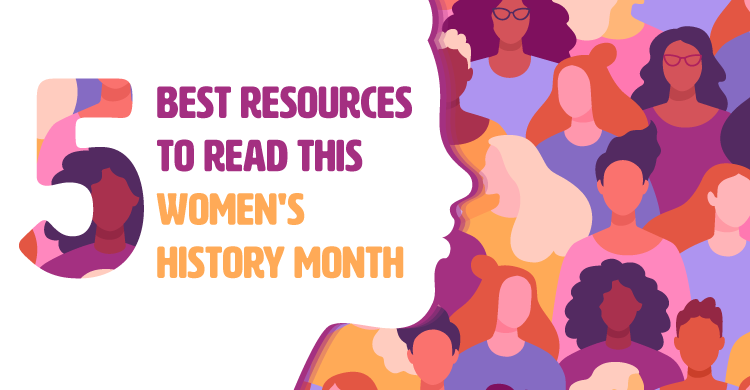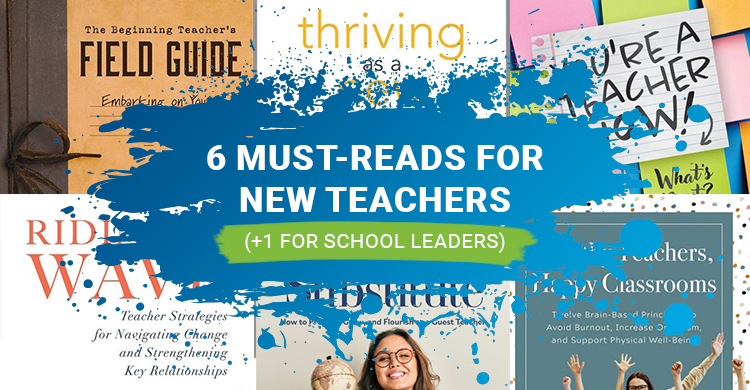Congratulations! You’ve fulfilled your dream to write a book—and the finished product is better than you ever imagined! Now you’re wondering, How can I get my book out into the world? We get it. Marketing is an ever-evolving art that most authors don’t have much experience with. Luckily, we’re working hard to change that. With this new series, Bookmark, publishing experts and our rock-star authors will share tips, tricks, and strategies that you can use to promote your own book and get it into the hands of the people who need it the most.
In this installment, author Liza A. Talusan discusses her new book, The Identity-Conscious Educator, and her experiences with the Solution Tree publishing and marketing teams. This timely and informative interview lets readers benefit from Liza’s insight into social media and her tips on how authors can start effectively talking about their books.
Q&A with Liza A. Talusan
Congratulations on the positive feedback you’ve received about your new book, The Identity-Conscious Educator! How did it feel to move from writing the book to marketing it?
Honestly, it was terrifying! I had really worked hard on the book, but writing a book about identity meant being very vulnerable about my own identity and experiences. I felt like I was telling these deep stories to strangers, and I was worried about what they’d think of me. There was one story in the book where I really kept going back and forth about whether I should keep it in there. It was a story that did not make me look good—the story about failure—and I worried that if I left it there then people would think I was a terrible person. But, the truth was, that story was one of the most important ones I could have told in the book. It showed that I was human, that I was a person capable of making mistakes, and how important it was to learn from those mistakes. And, in that story, I really felt like a terrible person. So I need to tell it in order for us to talk about the risks and conflicts of doing identity work.
I was also so grateful for the very hands-on approach, from start to finish, that the Solution Tree team had with me. Because of their deep care for my words, I could trust the process. I trusted that the editors at Solution Tree were thorough and gave me good feedback; trusted the peer review process; and trusted that what I wrote was important. All of that didn’t quite take away the terror of the final publishing date, but I at least felt more confident that the process was rigorous and careful and intentional.
You’ve received lots of mentions on social media. We loved seeing educators take selfies with your book on Twitter ☺. How did you go about promoting your book on social?
I’ve always believed that “good people find good people,” and that is so true in my life. I’m very fortunate to have been in community with incredible educators, friends, co-conspirators, and allies over the past 20+ years of doing this work. I was also very public during the writing stage via social media—posting about “good writing days” and “bad writing days” (yes, I had those too!). During the writing process, I had a community of people encouraging me to keep going. When I see people posting selfies with the book, I actually feel like they are holding up a product they feel a part of—and they are! I think they feel like my success as an author is their success as well! That makes me so happy! A few months after publication, I realized I wanted some help amplifying the messages of the book, so I began working with a woman-led social media company (March Lion Media) to help me with messaging. And, fun fact: the women who run the company are former high school students of mine from the early 2000s!
There’s another congratulations in order—you recently received a three-peat shirt from the Third Space podcast ☺. It was your third appearance on the podcast and a great interview. Have you always been comfortable being interviewed? How do you prep for interviews?
I love being on podcasts because, for me, it’s connecting with a friend or a stranger-turned-friend. Whenever I’m approached to be a guest, I always ask the interviewer, “Is it okay if we make it more conversational than one-sided? Because I want to hear what you have to say and what you want to contribute to this conversation too!” Those are my favorite podcasts—when the interviewer just gets to join in on the conversation. What I loved about Jen Cort’s podcast, Third Space, is that it is really meant to be as if you are listening in on some folks having a dialogue. So I’m grateful that Jen invited me to be on three times! Because I prefer a more conversational style of interview, I try not to overprepare so that we can go with the flow!
Social media can be a great way to connect with educators. Unfortunately, it’s not absent of negativity. How do you deal with negative comments?
I’m not going to lie—those negative comments can hurt and sting. But, as an identity-conscious practitioner, I tend to ask myself, “What does this reaction say about me? What might this person’s reaction say about them? Through what lens might this person be seeing my work/talk/book?” The approach to an identity-conscious practice is realizing that who you are informs and impacts how you act, interact, and see the world around you. So these questions that I’m asking whenever I read certain comments that might be hurtful or harmful are really asking, “What is it about that person that makes them act, interact, or see the world around them in this way?”
This approach helps me to lead with curiosity and compassion when I see negative comments. And, if the comments are constructive and help me to grow, I absolutely take them to shape a better practice.
I also know that the nature of social media means that people are having a dialogue in a very artificial way—folks tend to say things online that they wouldn’t say to someone’s face. So I know there is this false presentation that happens on social media as well. Because of this, I really do have to balance feedback, criticism, and the occasional offhand comment and ask myself, “Does this help me grow?”
You’ve also had some schools and events choose The Identity-Conscious Educator as a book study or required reading. The National Anti-Racism Teach-In was one of those events. You were a guest speaker at this event in years past, and this year you’re a keynote speaker! How do you nurture your professional relationships?
Relationships mean everything to me as an identity-conscious educator. Relationships require trust, understanding, and compassion. One of the most important lessons I learned from my parents, who were both small-business owners, is that relationships are everything in this work, and we need to take the time to get to know people in order to do good work. I believe people (e.g., organizations, teams, companies, schools) that I work with know that I will always have their best interests at the center. They trust that I know them, that I will act and interact with them with integrity, and that I will care for their community through critical feedback. Because of this, people and organizations are willing to continue partnerships with me because we get to grow and learn and achieve together. I am grateful for their commitment and their willingness to be in relationship with me!
Any last words of wisdom for authors beginning their marketing journey?
It is important to know that marketing is a skill and a strategy. People get advanced degrees in marketing and build habits and skills in this work. I know that I am out of my lane when I try to do advanced-level marketing, so I turned to professionals to do this. And I am grateful for their expertise. But it’s difficult to market a product (or a person or book) when there isn’t something authentic and real to connect to. So, as you begin your marketing journey, ask yourself, (1) Who am I?, (2) What do I want people to know?, and (3) What are my goals for this (e.g., book, marketing strategy, year)?
You also need to be able to talk about your book—you spent a lot of time, energy, and resources to write this book, so you need to let people know about it. People won’t just come find you—you have to give them something to find, to connect to, and to answer, “Why would I purchase this book?” I really appreciated the marketing meeting with the Solution Tree team that I had just before the book hit the stands. They really helped me to solidify the messaging, the purpose, and the goals for getting the book in schools, organizations, and homes. I’m so grateful for the resources Solution Tree has provided to me as a first-time author, and I hope you lean into all that Solution Tree has to offer!






